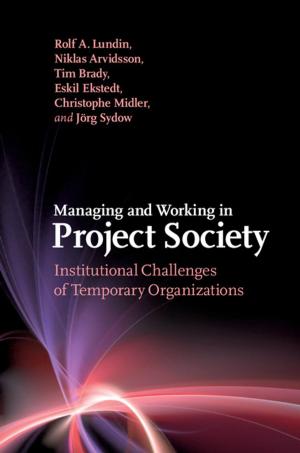Promoting Compliance
The Role of Dispute Settlement and Monitoring Mechanisms in ASEAN Instruments
Nonfiction, Reference & Language, Law, International| Author: | Robert Beckman, Leonardo Bernard, Hao Duy Phan, Ranyta Yusran, Tan Hsien-Li | ISBN: | 9781316545393 |
| Publisher: | Cambridge University Press | Publication: | May 19, 2016 |
| Imprint: | Cambridge University Press | Language: | English |
| Author: | Robert Beckman, Leonardo Bernard, Hao Duy Phan, Ranyta Yusran, Tan Hsien-Li |
| ISBN: | 9781316545393 |
| Publisher: | Cambridge University Press |
| Publication: | May 19, 2016 |
| Imprint: | Cambridge University Press |
| Language: | English |
The reputation and achievement of the ASEAN Community hinges on compliance. This seminal book discusses whether ASEAN's faith in dispute settlement and monitoring mechanisms as a means to better compliance is justified and delves into the extent to which they can facilitate ASEAN Community building. It provides the first comprehensive and systematic analysis of ASEAN's compliance with its instruments, and enables readers to see ASEAN as an organisation increasingly based on law and institutions. Readers will also learn how ASEAN balances a thin line between law and institutions on the one hand and diplomacy and realism on the other. Scholars of adjudicatory mechanisms will find this book a fascinating addition to the literature available, and it will serve as a 'go-to' reference for ASEAN state agencies. The book will also interest academics and practitioners working on comparative and cross-disciplinary studies of dispute settlement, monitoring mechanisms, compliance, and international and regional organisations.
The reputation and achievement of the ASEAN Community hinges on compliance. This seminal book discusses whether ASEAN's faith in dispute settlement and monitoring mechanisms as a means to better compliance is justified and delves into the extent to which they can facilitate ASEAN Community building. It provides the first comprehensive and systematic analysis of ASEAN's compliance with its instruments, and enables readers to see ASEAN as an organisation increasingly based on law and institutions. Readers will also learn how ASEAN balances a thin line between law and institutions on the one hand and diplomacy and realism on the other. Scholars of adjudicatory mechanisms will find this book a fascinating addition to the literature available, and it will serve as a 'go-to' reference for ASEAN state agencies. The book will also interest academics and practitioners working on comparative and cross-disciplinary studies of dispute settlement, monitoring mechanisms, compliance, and international and regional organisations.















